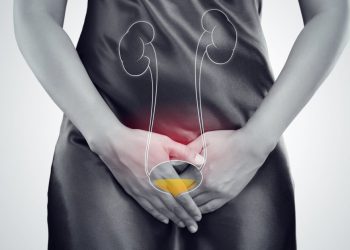Way back in the early, whirlwind days of the pandemic, surfaces were the thing to worry about. The prevailing scientific wisdom was that the coronavirus spread mainly via large droplets, which fell onto surfaces, which we then touched with our hands, with which we then touched our faces. (Masks, back then, were said by public health authorities to be unnecessary for the general public.) So we washed our hands until they were raw. We contorted ourselves to avoid touching doorknobs. We went through industrial quantities of hand sanitizer, and pressed elevator buttons with keys and pens, and disinfected our groceries and takeout orders and mail.
And then we learned we’d had it all backwards. The virus didn’t spread much via surfaces; it spread through the air. We came to understand the danger of indoor spaces, the importance of ventilation, and the difference between a cloth mask and an N95. Meanwhile, we mostly stopped talking about hand-washing. The days when you could hear people humming “Happy Birthday” in public restrooms quickly disappeared. And wiping down packages and ostentatious workplace-disinfection protocols became a matter of lingering hygiene theater.
This whole episode was among the stranger and more disorienting shifts of the pandemic. Sanitization, that great bastion of public health, saved lives; actually, no, it didn’t matter that much for COVID. On one level, this about-face should be seen as a marker of good scientific progress, but it also raises a question about the sorts of acts we briefly thought were our best available defense against the virus. If hand-washing isn’t as important as we thought it was in March 2020, how important is it?
Any public-health expert will be quick to tell you that, please, yes, you should still wash your hands. Emanuel Goldman, a microbiologist at Rutgers New Jersey Medical School, considers it “commonsense hygiene” for protecting us against a range of viruses spread through close contact and touch, such as gastrointestinal viruses. Also, let’s be honest: It’s gross to use the bathroom and then refuse to wash, whether or not you’re going to give someone COVID.
Even so, the pandemic has piled on evidence that the transmission of the coronavirus via fomites—that is, inanimate contaminated objects or surfaces—plays a much smaller role, and airborne transmission a much larger one, than we once thought. And the same likely goes for other respiratory pathogens, such as influenza and the coronaviruses that cause the common cold, Linsey Marr, an environmental engineer and aerosols expert at Virginia Tech, told me.
This realization is not an entirely new one: A 1987 study by researchers at the University of Wisconsin found that a group of men playing poker with “soggy,” rhinovirus-contaminated cards were not infected, while a group playing with other sick players were. Now Goldman intends to push this point even further. At a conference in December, he is going to present a paper arguing that, with rare exceptions, such as RSV, all respiratory pathogens are transmitted predominantly through the air. The reason we’ve long thought otherwise, he told me, is that our understanding has been founded on faulty assumptions. Generally speaking, the studies pointing toward fomite-centric theories of transmission were virus-survival studies, which measure how long a virus can survive on a surface. Many of them either used unrealistically large amounts of virus or measured only the presence of the virus’s genetic material, not whether it remained infectious. “The design” of these experiments, he said, “was not appropriate for being able to extrapolate to real-life conditions.”
The upshot, for Goldman, is that surface transmission of respiratory pathogens is “negligible,” probably accounting for less than .01 percent of all infections. If correct, this would mean that your chance of catching the flu or a cold by touching something in the course of daily life is virtually nonexistent. Goldman acknowledged that there’s a “spectrum of opinion” on the matter. Marr, for one, would not go quite so far: She’s confident that more than half of respiratory-pathogen transmission is airborne, though she said she wouldn’t be surprised if the proportion is much, much higher—the only number she would rule out is 100 percent.
For now, it’s important to avoid binary thinking on the matter, Saskia Popescu, an epidemiologist at George Mason University, told me. Fomites, airborne droplets, smaller aerosol particles—all modes of transmission are possible. And the proportional breakdown will not be the same in every setting, Seema Lakdawa, a flu-transmission expert at Emory University, told me. Fomite transmission might be negligible at a grocery store, but that doesn’t mean it’s negligible at a day care, where kids are constantly touching things and sneezing on things and sticking things in their mouths. The corollary to this idea is that certain infection-prevention strategies prove highly effective in one context but not in another: Frequently disinfecting a table in a preschool classroom might make a lot of sense; frequently disinfecting the desk in your own private cubicle, less so.
Much of the conspicuous cleaning we did early in the pandemic was excessive, Popescu said, but she worries that we may have slightly overcorrected, lumping some useful behaviors—targeted disinfection, even hand-washing in some cases—into the category of hygiene theater. Whatever the setting, the experts I spoke with all agreed that these behaviors remain important for contending with non-respiratory pathogens. Recently, when several members of Marr’s family came down with norovirus, an extremely unpleasant stomach bug that causes vomiting, diarrhea, and stomach cramping, she disinfected a number of high-touch surfaces around the house. Picture that: one of the country’s foremost experts on airborne transmission wiping down doorknobs and light switches.
Marr isn’t convinced we’ve overcorrected. Hand sanitizer still abounds, businesses still tout their surface-cleaning protocols, and air quality still gets comparatively little attention. Recently, she watched a person use their shirt to open the door of a visitor center without touching the handle … then proceed inside unmasked. There’s nothing wrong with taking certain precautions to prevent fomite transmission, she said—these should not all be dismissed en masse as hygiene theater—as long as they don’t come at the expense of efforts to block airborne transmission. “If you’re doing extra hand washing … then you should also be wearing a good mask in crowded indoor environments,” Marr said. “If you’re bothering to clean the surfaces, then you should be bothering to clean the air.”
On Friday, with respiratory-virus season looming, CDC Director Rochelle Walensky tweeted out three pieces of advice for staying healthy: “Get an updated COVID-19 vaccine & get your annual flu vaccine,” “Stay home if you are sick,” and—not to be forgotten—“Practice good hand hygiene.” She made no mention of masks or ventilation.
Source by www.theatlantic.com











